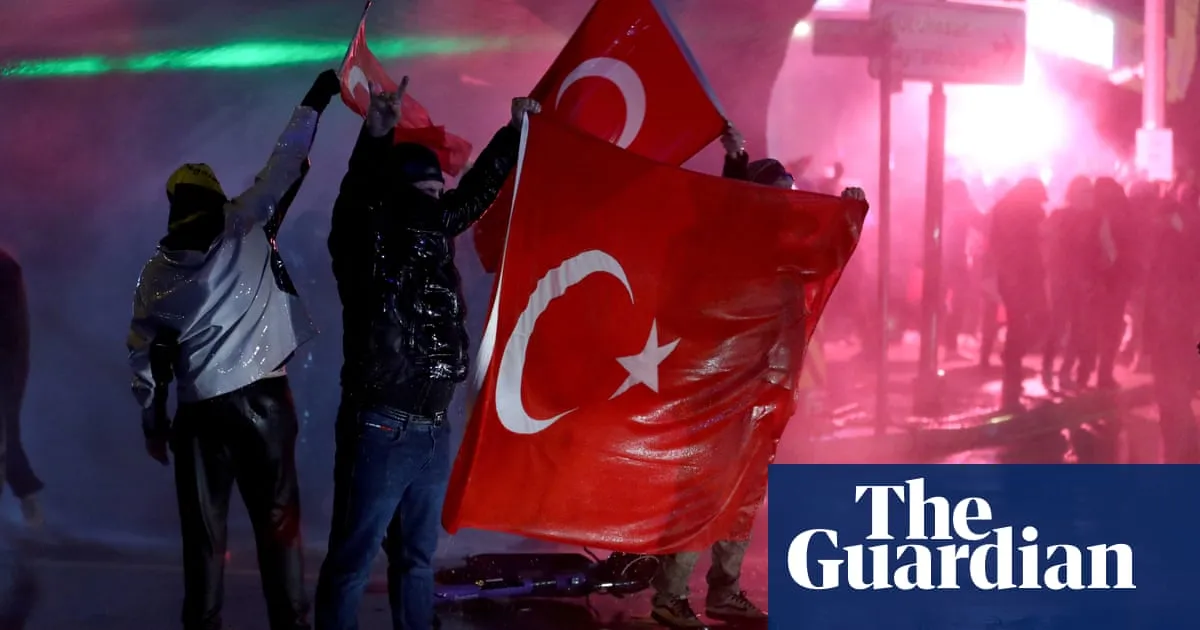
In a significant escalation of tensions, Turkish authorities have arrested more than 1,100 individuals, including journalists, amidst widespread protests across the country. These demonstrations, which are the largest anti-government protests seen in years, were ignited by the arrest of Istanbul Mayor Ekrem İmamoğlu on corruption charges. This crackdown has seen the government requesting the social media platform X to block hundreds of accounts, further intensifying the situation.
The wave of arrests began just after İmamoğlu was detained and sent to a high-security prison on the outskirts of Istanbul, coinciding with his announcement as the opposition's presidential candidate. The protests that followed represent the largest mobilizations in Turkey in over a decade, as tens of thousands took to the streets in cities like Istanbul and other major towns.
According to the Turkish Interior Minister Ali Yerlikaya, a total of 1,133 people were detained over a span of five days, starting with the early morning raids that resulted in the capture of İmamoğlu and numerous municipal officials. Many of these arrests pertained to violations of a city-wide protest ban imposed by Istanbul's governor, who also restricted access to the city in a bid to quell the demonstrations.
Yerlikaya stated that “some circles have been abusing the right to assembly and demonstration,” claiming that these actions aimed to disrupt public order. However, Turkish authorities have denied that the charges against İmamoğlu are politically motivated. This crackdown, however, is proving costly for the Turkish state, with economists estimating that the Turkish central bank spent up to $25 billion in just three days to stabilize the lira amidst the unrest.
Turkey has been grappling with an ongoing economic crisis that has significantly increased the cost of living, leading to widespread dissatisfaction with the government long before these recent protests began. In response to the turmoil, the Turkish capital markets board announced a one-month ban on short selling at the Istanbul Stock Exchange, citing “recent developments” related to the protests and İmamoğlu's detention.
The targeting of journalists during this crackdown is particularly alarming. Evin Barış Altıntaş, head of the Media and Law Studies Association, noted that many of those arrested overnight were photographers, indicating a deliberate effort to limit visual coverage of the protests. This sentiment is echoed by the threats from Ebubekir Şahin, the head of Turkey’s media regulator, RTÜK, who suggested that broadcasters could face license suspensions for airing live footage of the demonstrations.
Despite denying any threats to media freedom, Şahin stated that “the state will do what is necessary,” reflecting the government's harsh stance on dissent. Altıntaş expressed concern over the efforts to suppress news coverage, emphasizing that the protests are growing in scale and that the authorities are struggling to contain the narrative.
In a further attempt to control the flow of information, the global government affairs team from the platform X has objected to multiple court orders from the Turkish government aimed at blocking over 700 accounts belonging to news organizations, journalists, political figures, and students. They argue that such actions are not only unlawful but also hinder millions of Turkish users from accessing vital news and political discourse.
Altıntaş pointed out that despite claims from X’s owner, Elon Musk, about supporting free speech, the platform has allowed at least 110 accounts to be blocked in Turkey, including those of journalists covering the protests and various activist groups. She remarked, “There is a clear attempt to censor images and videos of the protests, and this is obviously a part of that.”
The situation in Turkey remains volatile as authorities ramp up their efforts to quell dissent following significant protests against the government. As the crackdown continues, the implications for free speech, media freedom, and the broader socio-political landscape in Turkey are profound and far-reaching.